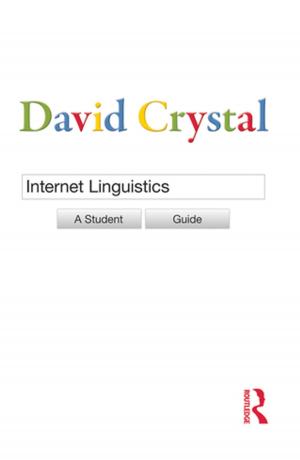| Author: | ISBN: | 9780429780264 | |
| Publisher: | Taylor and Francis | Publication: | October 31, 2018 |
| Imprint: | Routledge | Language: | English |
| Author: | |
| ISBN: | 9780429780264 |
| Publisher: | Taylor and Francis |
| Publication: | October 31, 2018 |
| Imprint: | Routledge |
| Language: | English |
Originally published in 1980, this is a book about the psychology of figurative language. It is however, eclectic and therefore should be of interest to professionals and students in education, linguistics, philosophy, sociolinguistics, and other concerned with meaning and cognition. The editors felt there was a pressing need to bring together the growing empirical efforts of this topic. In a sense, recognition of the theoretical importance of figurative language symbolized the transition from the psycholinguistics of the 1960s to that of the late 1970s, that is from a linguistic semantics to a more comprehensive psychological semantics with a healthy respect for context, inference, world knowledge, and above all creative imagination. The organization of the volume reflects the more basic, general concerns with cognition – from historical and philosophical background, through problems of mental representation and semantic theory, to developmental trends, and to applications in problem solving.
Originally published in 1980, this is a book about the psychology of figurative language. It is however, eclectic and therefore should be of interest to professionals and students in education, linguistics, philosophy, sociolinguistics, and other concerned with meaning and cognition. The editors felt there was a pressing need to bring together the growing empirical efforts of this topic. In a sense, recognition of the theoretical importance of figurative language symbolized the transition from the psycholinguistics of the 1960s to that of the late 1970s, that is from a linguistic semantics to a more comprehensive psychological semantics with a healthy respect for context, inference, world knowledge, and above all creative imagination. The organization of the volume reflects the more basic, general concerns with cognition – from historical and philosophical background, through problems of mental representation and semantic theory, to developmental trends, and to applications in problem solving.















